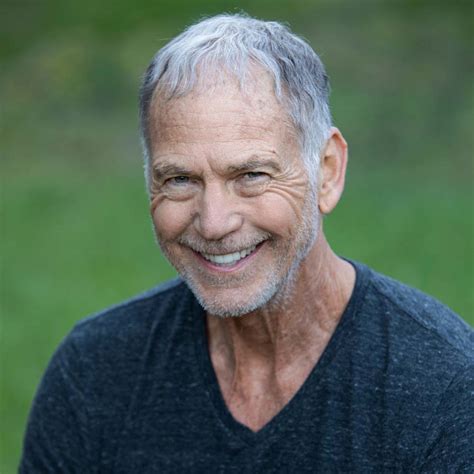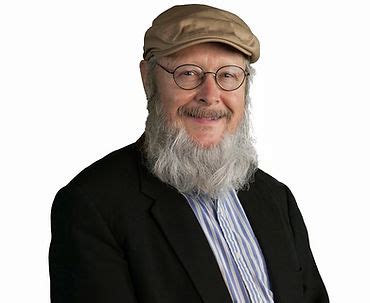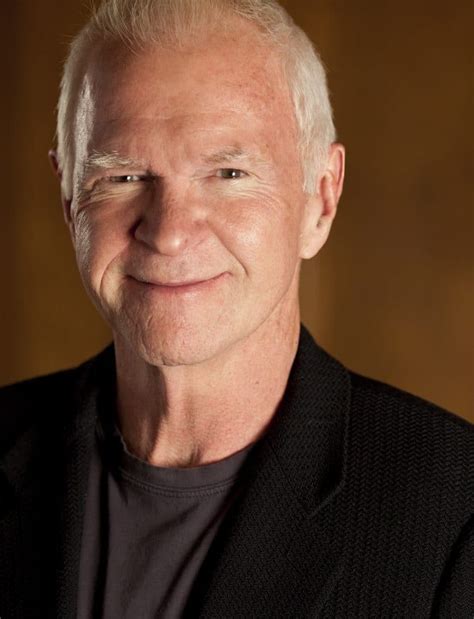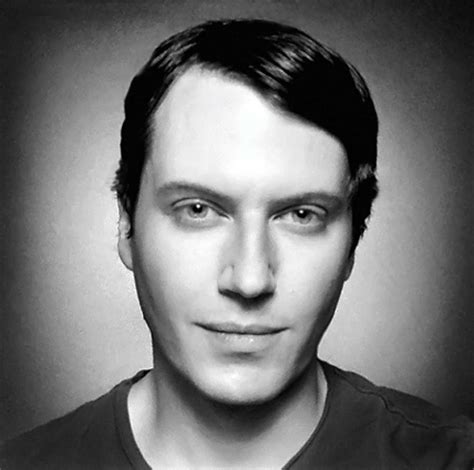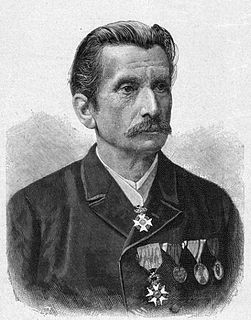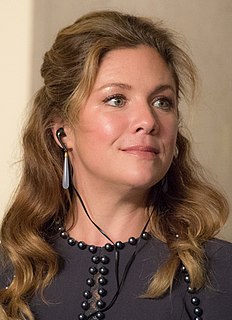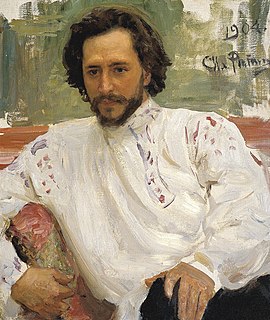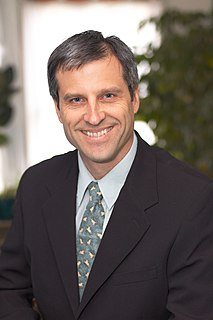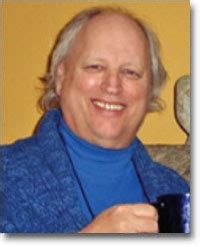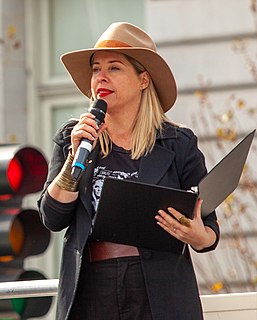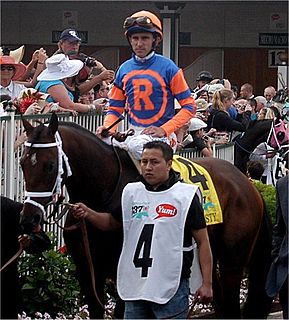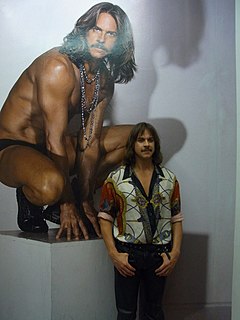Top 1200 Deceiving Ourselves Quotes & Sayings - Page 19
Explore popular Deceiving Ourselves quotes.
Last updated on December 12, 2024.
Let’s not fool ourselves into thinking that pride is a problem only for the lost. The most effective means the enemy has to keep believers from being full of the Spirit is to keep us full of ourselves. No wonder the Bible states and restates that God hates pride. It is the enemy of genuine ministry. It is the end of many homes.
The joy is that we can take back our bodies, reclaim our health, and restore ourselves to balance. We can take power over what and how we eat. We can rejuvenate and recharge ourselves, bringing healing to the wounds we carry inside us, and bringing to fuller life the wonderful person that each of us can be.
Loving the self, to me, begins with never ever criticizing ourselves for anything. Criticism locks us into the very pattern we are trying to change. Understanding and being gentle with ourselves helps us to move out of it. Remember, you have been criticizing yourself for years, and it hasn't worked. Try approving of yourself and see what happens.
What moralists describe as the mysteries of the human heart are solely the deceiving thoughts, the spontaneous impulses of self-regard. The sudden changes in character, about which so much has been said, are instinctive calculations for the furtherance of our own pleasures. Seeing himself now in his fine clothes, his new gloves and shoes, Eugène de Rastignac forgot his noble resolve. Youth, when it swerves toward wrong, dares not look in the mirror of conscience; maturity has already seen itself there. That is the whole difference between the two phases of life.
We can either have a twenty-first-century conversation about morality and the human well-being - a conversation in which we avail ourselves of all scientific insights and philosophical arguments that have accumulated in the last two thousand years of human discourse - or we can confine ourselves to a first-century conversation as it is preserved in the Bible.
There are some things more important than ourselves - more important than the limits of the present, and the whims of the now. There is a future to build and protect. And if we're going to make that future as reality, we have to stop fighting among ourselves. We have to end dissent whenever we find it. We have to trust one another again.
The vicarious responsibility for things we have not done, this taking upon ourselves the consequences for things we are entirely innocent of, is the price we pay for the fact that we live our lives not by ourselves but among our fellow men, and that the faculty of action, which, after all, is the political faculty par excellence, can be actualized only as one of the many and manifold forces of human community.
When we seek happiness through accumulation, either outside of ourselves-from other people, relationships, or material goods-or from our own self-development, we are missing the essential point. In either case we are trying to find completion. But according to Buddhism, such a strategy is doomed. Completion comes not from adding another piece to ourselves but from surrendering our ideas of perfection.
The ultimate reason for meditating is to transform ourselves in order to be better able to transform the world or, to put it another way, to transform ourselves so we can become better human beings in order to serve others in a wiser and more efficient way. It gives your life the noblest possible meaning.
What you call love does not sound very beautiful. Think of the way we adore the Throne. That adoration makes us the best version of ourselves. We feel encouraged to go further with or instincts, not to change ourselves for love. If I were yours and you were mine, I would want you to be exactly as you are. I would never eclipse you with my desires.
One of the worst features about worrying is that it destroys our ability to concentrate. When we worry, our minds jump here and there and everywhere, and we lose all power of decision. However, when we force ourselves to face the worst and accept it mentally, we then eliminate all those vague imaginings and put ourselves in a position in which we are able to concentrate on our problem.
We are afraid of ourselves and our own unconscious minds. When we are building something that reflects us, it's the one thing we're all afraid to face. We're afraid to face ourselves. Building machines that mirror our consciousness is a very frightening proposition because we have seen how evil people can be.
Love knows no virtue, no profit; it loves and forgives and suffers everything, because it must. It is not our judgment that leads us; it is neither the advantages nor the faults which we discover, that make us abandon ourselves, or that repel us. It is a sweet, soft, enigmatic power that drives us on. We cease to think, to feel, to will; we let ourselves be carried away by it, and ask not whither?
Loving kindness towards ourselves doesn't mean getting rid of anything. It means we can still be crazy after all these years. We can still be angry after all these years. We can still be timid or jealous or full of feelings of unworthiness. The point is not to try to throw ourselves away and become something better. It's about befriending who we are already.
We tell girls to be themselves, but then they have role models - sometimes too many role models - in popular culture who incarnate that kind of disconnectedness from oneself. We are taught to self-hate; we are taught to doubt. Our culture doesn't help us recognize ourselves as amazing beings without changing ourselves.
We have the ability to choose, we are God's higher form of creation, we surpass all other forms of life and we don't use the mental faculties we've been given. We don't even understand what we are capable of doing. School doesn't teach us anything about ourselves. So the more we learn about ourselves, the more we take control over our life.
We who preach the gospel must not think of ourselves as public relations agents sent to establish good will between Christ and the world. We must not imagine ourselves commissioned to make Christ acceptable to big business, the press, the world of sports or modern education. We are not diplomats but prophets, and our message is not a compromise but an ultimatum.
The balance and peace we seek for ourselves and our society won't be achieved through mental effort alone. Mind and spirit are meant to travel together, with spirit leading the way. Until we make a conscious commitment to understand and embrace our spiritual nature, we will endure the ache of living without the awareness and guidance of the most essential part of ourselves.
Before us lie two paths - honesty and dishonesty. The shortsighted embark on the dishonest path; the wise on the honest. For the wise know the truth; in helping others we help ourselves; and in hurting others we hurt ourselves. Character overshadows money, and trust rises above fame. Honesty is still the best policy.
As we educate a child -- removing out of its path those obstacles over which we ourselves, in early days, have stumbled, and strengthening its mind with the aid of our own matured experience -- we, as it were, construct a new and better replica of ourselves, and thus enable the race to move slowly, but surely, forward towards the ultimate goal of existence -- towards perfection.
When we are not engaged in thinking about some definite problem, we usually spend about 95 percent of our time thinking about ourselves. Now, if we stop thinking about ourselves for a while and begin to think of the other person's good points, we won't have to resort to flattery so cheap and false that it can be spotted almost before it is out of the mouth.
The duties God requires of us are not in proportion to the strength we possess in ourselves. Rather, they are proportional to the resources available to us in Christ. We do not have the ability in ourselves to accomplish the least of God's tasks. This is the law of grace. When we recognize it is impossible for us to perform a duty in our own strength, we will discover the secret of its accomplishment.
I was not yet three years old when my mother determined to send one of my elder sisters to learn to read at a school for girls we call the Amigas. Affection, and mischief, caused me to follow her, and when I observed how she was being taught her lessons I was so inflamed with the desire to know how to read, that deceiving - for so I knew it to be - the mistress, I told her that my mother had meant for me to have lessons too. ... I learned so quickly that before my mother knew of it I could already read.
I think when you run by someone and there's a thumbs up or encouragement, that's something that I really love. It's a brotherhood, a support and an appreciation for the effort we're all making. I think it's also about living well, living healthy, taking care of ourselves, getting in touch with ourselves, our bodies, our minds. It's a mind-body connection that running helps enhance.
We are always more anxious to be distinguished for a talent which we do not possess, than to be praised for the fifteen which we do possess. Sometimes we are too close to the scene, to see clearly. We "know" ourselves so well that we cannot see how we are perceived by others. Our opinion of ourselves is only "one" opinion and it may not be the truth.
See, Ebola, like all threats to humanity, it's fueled by mistrust and distraction and division. When we build barriers amongst ourselves, and we fight amongst ourselves, the virus thrives. But unlike all threats to humanity, Ebola is one where we're actually all the same. We're all in this fight together.
I think we each have a personal sweet spot as well. It's the state of mind in which we experience the most joy and satisfaction in being ourselves. And from that place of pleasure and joy in being ourselves, energy arises to flow out into our day bringing with it the depth and resonance of our own beingness, bringing with it blessing.
God is also fully aware that the people you think are perfect are not.
And yet we spend so much time and energy comparing ourselves to others-usually comparing our weaknesses to their strengths. This drives us to create expectations for ourselves that are impossible to meet. As a result, we never celebrate our good efforts because they seem to be less than what someone else does
I find that as we really love and accept and APPROVE OF OURSELVES EXACTLY AS WE ARE, then everything in life works. It's as if little miracles are everywhere. Our health improves, we attract more money, our relationships become much more fulfilling, and we begin to express ourselves in creatively fulfilling ways. All this seems to happen without even trying.
I have always been intrigued by the journals that girls keep. They are like dollhouses. Once you look inside them, the rest of the world seems very far away, even unbelievable. If only we had the power to keep outside ourselves at such moments, we would spare ourselves so much pain and fear. I'm not talking about truth or falsehood but about surviving.
Chacun peut e prouver en soi ce double mouvement: de s ir de s'inte grer a' la socie te , besoin de se re aliser par soi-me" me en dehors d'elle. We all have this double impulse within ourselves: the desire to integrate into society, and the need to fulfil ourselves outside of it, through our own efforts.
[W]omen's magazines know that more than two thirds of women pray each day so they tend to promote "spirituality" which is warm, soft, fuzzy, and "me-centered, " rather than religion, which is definitely not. Shot with a soft-focus lens, spirituality in women's media has morphed into another method of stress reduction. Lulling and inoffensive, spirituality is more about taking long walks and buying $65 Jo Malone scented candles than making ethical decisions or moral judgments. It's another way to calm ourselves, refresh ourselves, or applaud ourselves.
"Be grateful to everyone" is about making peace with the aspects of ourselves that we have rejected... If we were to make a list of people we don't like - people we find obnoxious, threatening, or worthy of contempt - we would discover much about those aspects of ourselves that we can't face... other people trigger the karma that we haven't worked out.
Through a lot of scientific and left-hemisphere thinking in the last 400 years, we've separated ourselves from nature, as if we were superior. We were looking at nature as a resource that we could manipulate. I think we're coming to a new understanding that it's just impossible. We are nature. We can't remove ourselves. We need to think more interdependently.
I don't necessarily think stories have functions any more than diamonds have functions, or the sky has a function... Stories exist. They keep us sane, I think. We tell each other stories, we believe stories. I love watching the slow rise of the urban legend. They're the stories that we use to explain ourselves to ourselves.
Sometimes we mask ourselves to further reveal ourselves, and it's always been connected to me with being a writer: We tell lies to tell a greater truth. The story is a mask; the characters you create are masks. That appeals to me. Aside from that, too, in the carnival the masks were beautiful, and offered a vision of Haitian creativity.
He's just very deceiving. He just covers a lot of ground with ease. I got to the three-eighths pole, and I even got a little concerned because he was so relaxed. I wasn't sure if he was going to fire, but I didn't want to test him that early. As soon as I got to the top of the stretch I shook him up and got an immediate response. In the stretch, once I knew he wasn't going to get beat, I put my hands down and he eased himself up. He's a real smart horse and he's got a great attitude.
God is dead. God remains dead. And we have killed him. Yet his shadow still looms. How shall we comfort ourselves, the murderers of all murderers? What was holiest and mightiest of all that the world has yet owned has bled to death under our knives; who will wipe this blood off us? What water is there for us to clean ourselves?
We may as well face it: the whole level of spirituality among us is low. We have measured ourselves by ourselves until the incentive to seek higher plateaus in the things of the Spirit is all but gone (We) have imitated the world, sought popular favor, manufactured delights to substitute for the joy of the Lord and produced a cheap and synthetic power to substitute for the power of the Holy Ghost.
And yet many of us do it without families," Nynaeve said. "Without love, without passion beyond our own particular interests. So even while we try to guide the world, we separate ourselves from it.We risk arrogance, Egwene. We always assume we know best, but risk making ourselves unable to fathom the people we claim to serve.
I think basically, there are some bands and acts who feel the need to cultivate a persona or act a certain way or get quotes or whatever, because they feel like that helps them get promotion, and I feel like we're a band who have always just made music that we love and kept ourselves to ourselves and got on with it.
God comes right out and tells us why he gives us more money than we need. It's not so we can find more ways to spend it. It's not so we can indulge ourselves and spoil our children. It's not so we can insulate ourselves from needing God's provision. It's so we can give and give generously (2 Corinthians 8:14; 9:11)
We, as band, always positioned ourselves between art and entertainment, which often works against us - Fischerspooner is between business models. Art is about limiting access to the product to create value, and entertainment is about dispersing it. We've put ourselves in a position where, if we reach conceptual perfection, it's career suicide.

